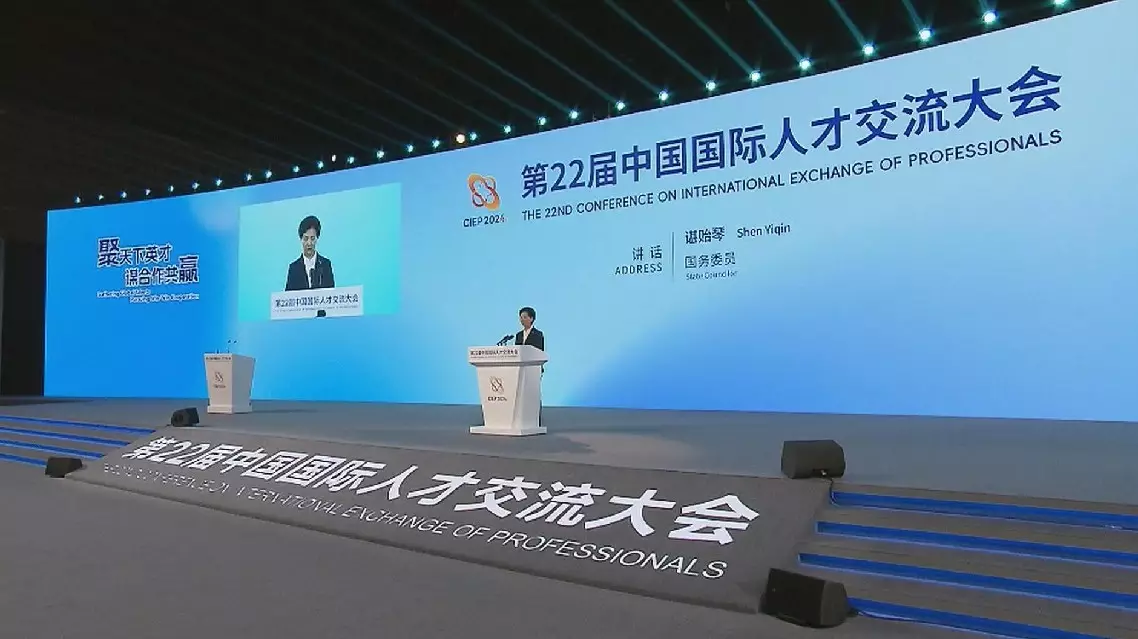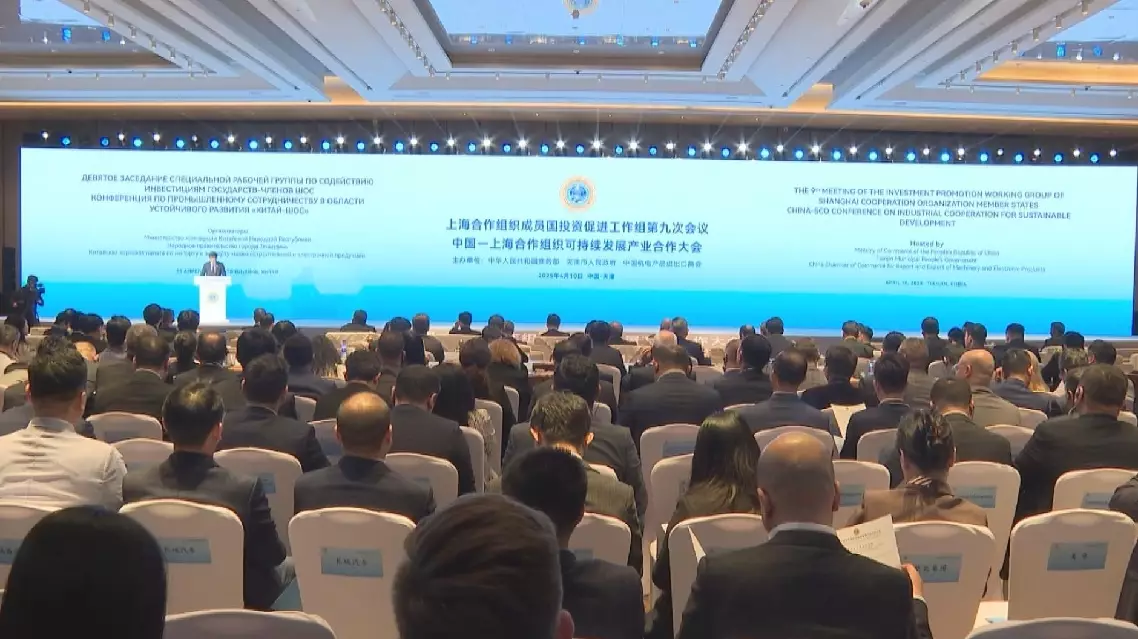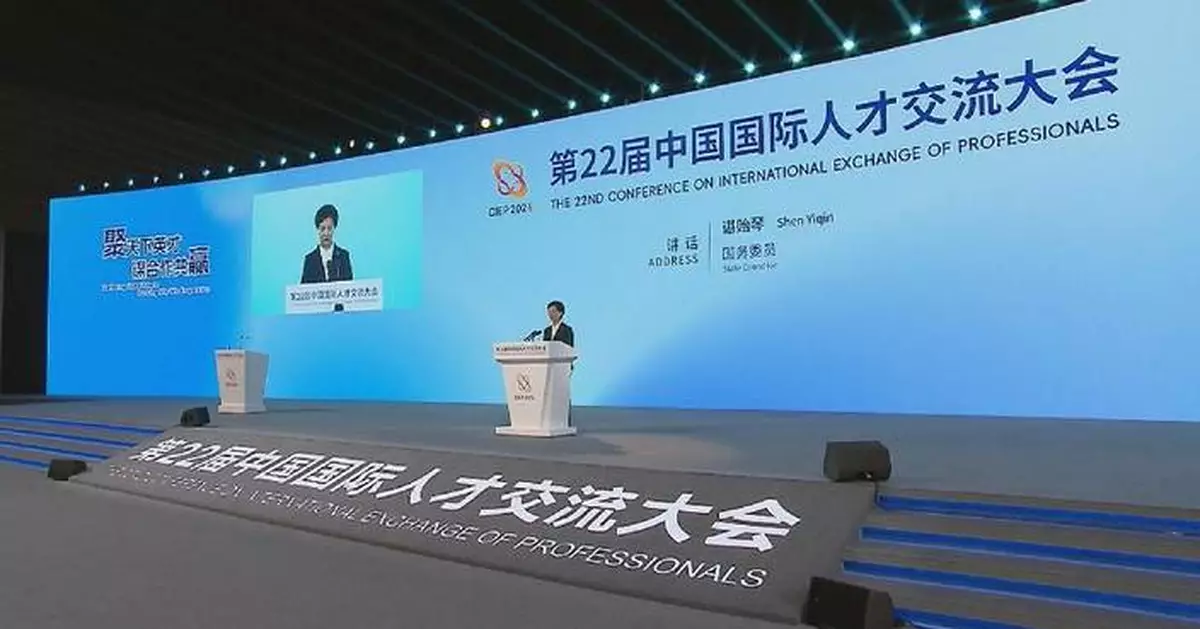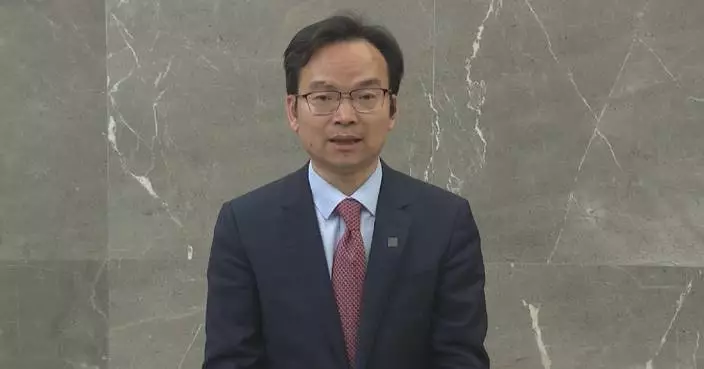The 22nd Conference on International Exchange of Professionals (CIEP), one of China's biggest annual gatherings for talent exchanges, opened in Shanghai on Saturday.
The two-day event is set with 32 conference venues and scheduled with 48 talent exchange events. More than 1,300 international experts from more than 120 countries and regions attended the opening ceremony.
Chinese State Councilor Shen Yiqin attended the opening ceremony, and inspected the work on introducing talents and employment services in Shanghai.
She stressed that it is necessary to further support and guarantee overseas talent introduction, strengthen international talent exchanges, in a bid to establish win-win cooperation, and provide talent and intellectual support for promoting Chinese-style modernization.
Shen also stated precise skill trainings which are necessary to better serve people in employment seeking and bring them additional income.
Founded in 2001, the Conference on International Exchange of Professionals (the CIEP) has been successfully held for 22 sessions so far.
According to initial statistics, each session of the CIEP has attracted professional organizations to participate in the exhibition from more than 40 countries and regions such as the UK, Germany, France, Italy, the USA, Canada, Australia, New Zealand, Russia, Ukraine, Japan, South Korea, Singapore, Israel, Brazil, Argentina, and South Africa.
In its history, more than 35,000 foreign experts, overseas students and professionals have attended the conference, and a total of over 10,000 projects have been launched under the event.
Themed "Pursuing Common Development and Benefiting Worldwide Professionals in the Drive to Scientific and Technological Innovation", the CIEP has become a national, international and comprehensive exhibition and negotiation occasion for the exchange of international technological innovation talents.

22nd Conference on Int'l Exchange of Professionals opens in Shanghai
China and other member states of the Shanghai Cooperation Organization (SCO), pledged to enhance sustainable development cooperation at a Thursday conference in Tianjin, ahead of this year's SCO summit.
As the rotating chair for this year, China is to host the SCO summit in Tianjin this autumn. The China-SCO Conference on Industrial Cooperation for Sustainable Development is one of the activities organized during a promotion event from Wednesday to Friday. It aims to promote cooperation in fields like infrastructure, energy, mining and petrifaction.
Nearly 400 guests, including government officials and enterprises from SCO member states attended the opening session.
"In 2024, China's trade volume with SCO member states, observer states and dialogue partners reached a record high of 890 billion U.S. dollars, accounting for about 14.4 percent of China's total foreign trade volume, fully demonstrating the tremendous vitality and broad prospects of trade development within the region," said Ling Ji, vice minister of commerce and deputy China international trade representative, at the conference.
As China has extensive experience in promoting sustainable development, attendees from SCO member states expressed hope to strengthen cooperation with China across various sectors, said SCO Deputy Secretary General Sohail Khan.
"China plays a very, very important, significant role in sustainable development, as I said, so we are expecting that in the sustainable development context, all member states have lot to gain and learn from China on its achievements in various areas, like agricultural industries, energy, high tech, information technology, and robot AI," he said.
By the end of 2024, China's investment stocks in SCO member states, observer states and dialogue partners have exceeded 140 billion U.S. dollars, with the total value of contracts signed by Chinese enterprises in these countries exceeding one trillion U.S. dollars and the completed turnover surpassing 680 billion U.S. dollars.
In 2024, about 19,000 China-Europe freight train ran through the SCO region, marking a year-on-year increase of 10.7 percent and significantly promoting regional connectivity and economic development.

China, SCO member states pledge deeper sustainable development cooperation





















































